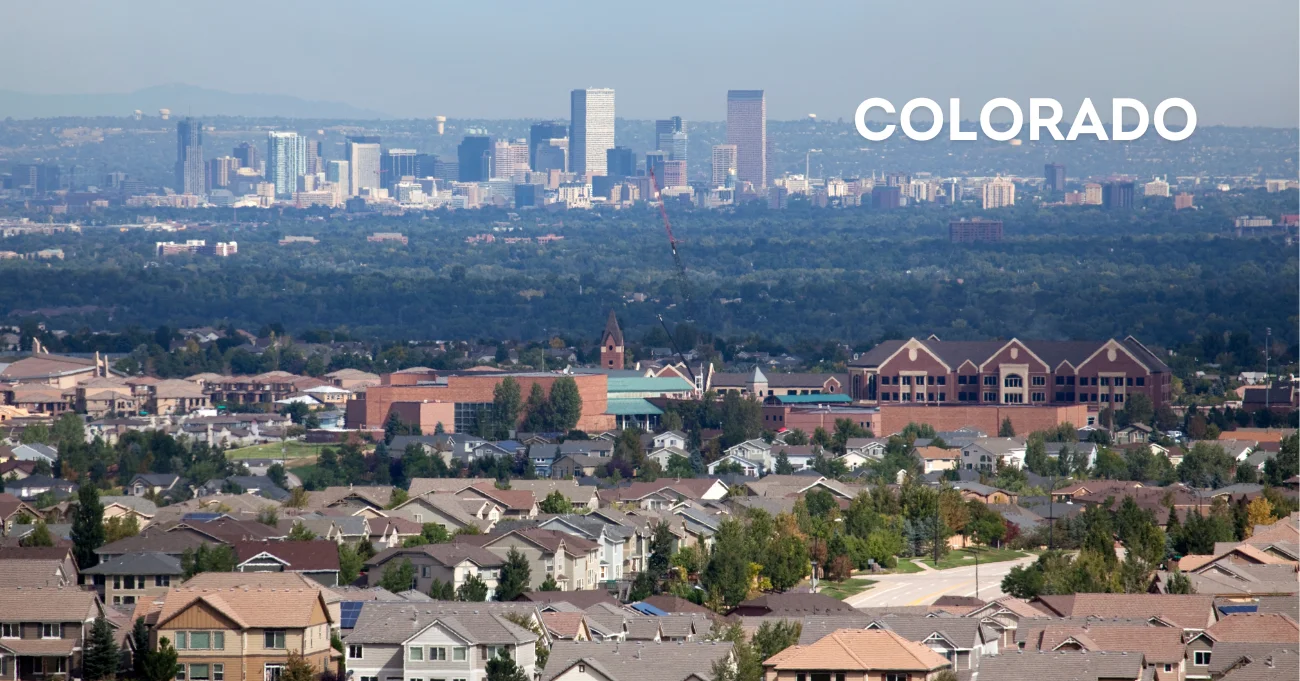Real estate financing in Colorado can be tough due to the competitive housing market and stringent property regulations. As a result, the DSCR loan Colorado has become a popular solution for investors to overcome these obstacles. Since they focus on a property’s income-generating potential rather than the borrower’s personal income, DSCR loans in Colorado are especially effective financing tools compared to traditional financing options.
At Defy Mortgage, we provide a streamlined mortgage process to entrepreneurs, freelancers, real estate investors, and homebuyers. We offer over 75 non-traditional options tailored to every client’s unique needs, including DSCR loans, home loans, bank statement loans, or P&L loans. Our goal is to offer fast, reliable pre-approvals and personalized support to meet your financing needs.
With our extensive experience in providing various financing products, we’ve put together this blog to provide you with all the information you need to know about availing of a DSCR loan program in Colorado. From understanding the benefits of DSCR loans to navigating the state’s unique laws and market conditions, we’ll cover all the bases. We’ll also guide you through the eligibility criteria, which properties are best for DSCR loans in Colorado, and how DSCR loans compare to more conventional loan programs in the state.
Read on to learn all you need to know about DSCR loans in Colorado.
DSCR Loans in Colorado
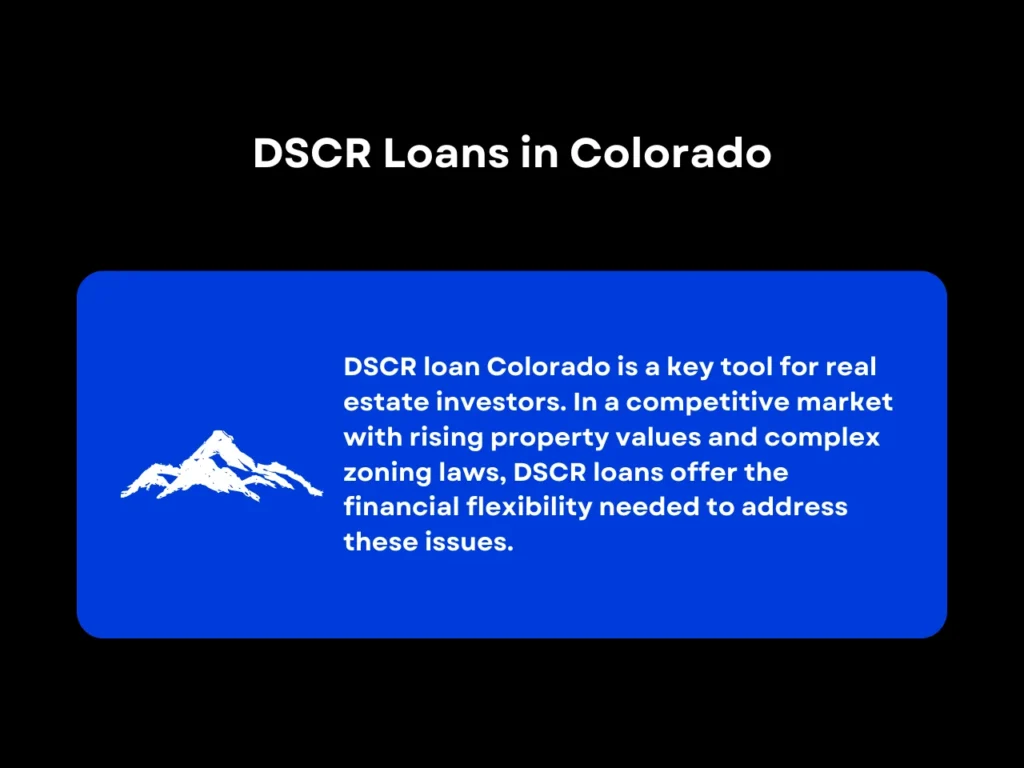
DSCR loan Colorado is potentially the most important tool for real estate investors in the state. Colorado has a competitive housing market with rapidly appreciating property values, intricate zoning laws and building codes. DSCR loans can provide the financial flexibility to address these challenges.
Areas like Denver and Fort Collins can be highly lucrative because of their rapid appreciation rate and strong rental demand, but this, in turn, breeds intense competition that can drive up prices. This can make it harder for investors to find affordable opportunities that yield strong returns. Colorado’s laws can further complicate investment strategies, such as Boulder City’s limit on the maximum number of housing units per acre and building standards in wildfire- and flood-prone areas.
However, since DSCR loans focus on the income of the property rather than your own finances, all you need to do is find a property with great income-earning potential. Some lenders can grant higher loan amounts for well-performing properties, which can give you the financial freedom to reinvest into developments that can address environmental and market challenges while raising your rental income. A high DSCR rating can also help you secure great interest rates and repayment flexibility, ultimately maximizing your profits.
What is a DSCR Loan and What is its Importance in Real Estate Investments?
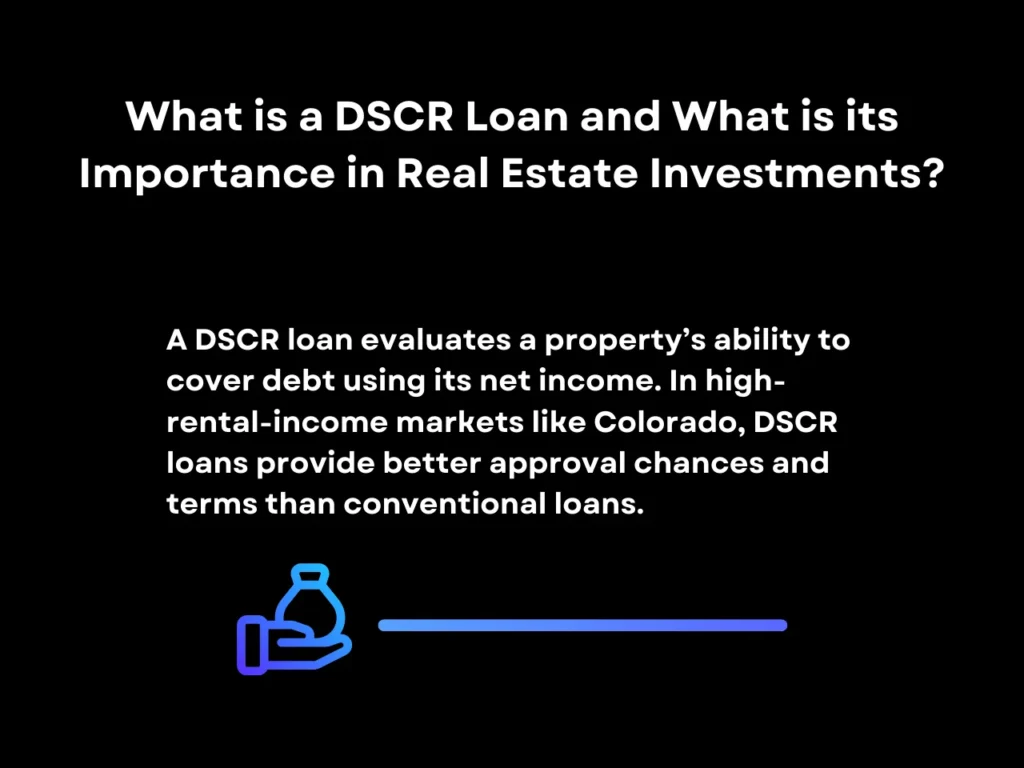
A Debt Service Coverage Ratio loan is a specialized type of investment property loan that focuses on the Debt Service Coverage Ratio (DSCR)–essentially, the property’s ability to cover its debt obligations using its net income.
Lenders are more likely to approve DSCR loans than conventional loans because only the property’s income is taken into consideration, rather than the borrower’s personal finances. This means you don’t need to submit detailed personal finance documents like tax returns, but lenders may still check credit reports and similar files to verify your creditworthiness.
To calculate the DSCR, you divide the property’s Net Operating Income (NOI) by the total debt service. For instance, if a property generates an NOI of $12,000 annually and the debt service is $10,000, the DSCR would be 1.2. This ratio indicates that the property generates 20% more income than required to cover the debt service.
DSCR loans are an excellent option in markets with high rental income potential like Colorado. Properties with higher rental incomes have higher DSCRs, making it more likely for you to get approved for a DSCR loan to purchase those properties compared to traditional financing options. Depending on your lender, you can also get better interest rates and a larger loan amount, which opens up opportunities to buy properties you might not have been approved for with a conventional mortgage loan.
How DSCR Reflects on Your Investment Property’s Financial Health
The Debt Service Coverage Ratio (DSCR) is a clear indicator of your investment property’s financial health. It measures the ratio between your property’s annual income and its debt obligations. A DSCR of 1.0 means your property is breaking even—just covering its mortgage payments. Think of it this way: a DSCR of 1.6 means your property is generating 160% of its debt obligations, which is a strong sign of profitability.
For DSCR lenders, the higher the DSCR, the better. It signals that the property can comfortably handle loan payments and associated costs, even in the face of potential fluctuations in rental income due to economic shifts or unexpected events. This makes DSCR a straightforward and reliable metric for assessing a property’s income-generating potential and overall financial stability.
Comparing DSCR Loans with Other Financing Options
Due to the state’s unique market conditions and legal landscape, DSCR loans in Colorado have numerous advantages over essentially other types of loans. Here’s how DSCR loans stack up against traditional mortgages, hard money loans, and bridge loans in Colorado:
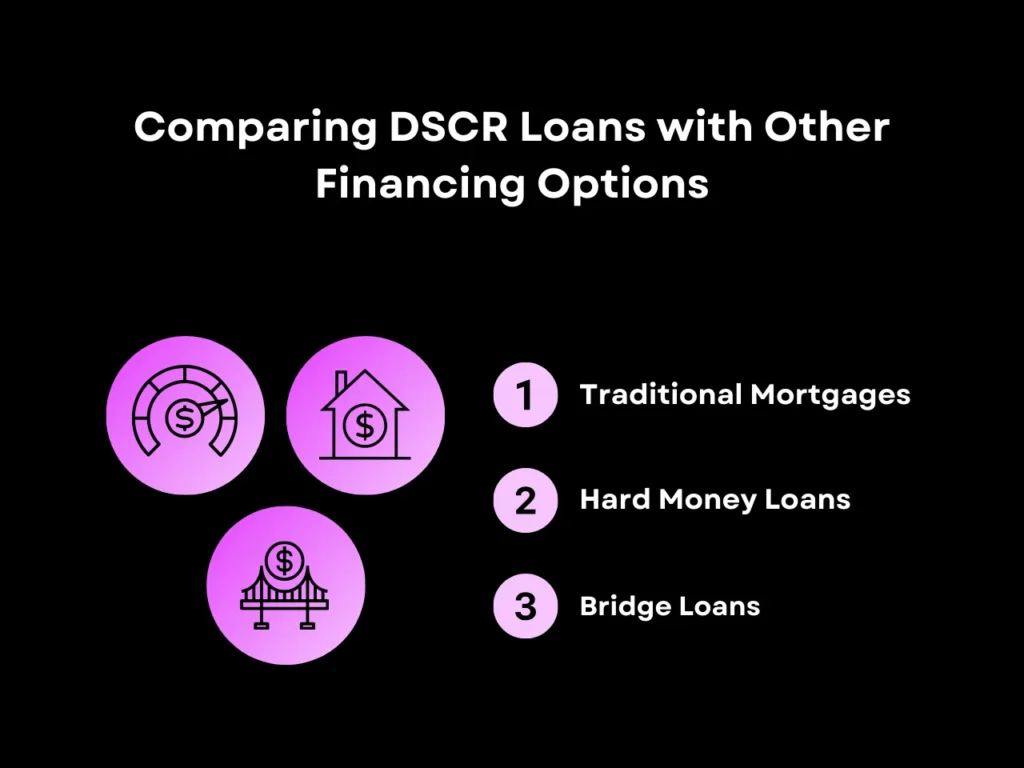
Traditional Mortgages
These loans typically require comprehensive income verification, a strong credit score, and a stable financial history. While they can be suitable for primary residences, they often fall short for Colorado investors, especially those dealing with the state’s competitive property market and strict zoning laws. Traditional mortgages may also struggle with the state’s higher insurance costs associated with Colorado’s wildfire and flood-prone areas, making them less flexible for investment properties, particularly for borrowers with non-traditional income sources.
Hard Money Loans
Hard money loans offer quick funding based on the property’s value, bypassing the borrower’s creditworthiness. While this can be beneficial for time-sensitive transactions, the significantly higher interest rates and shorter terms can be a drawback.
In Colorado, where property values can fluctuate due to environmental risks or seasonal demand, the higher costs of hard money loans can outweigh their benefits. They can be very beneficial in other states where property values are more stable and less influenced by environmental factors, but in Colorado specifically, they’re a less attractive option compared to DSCR loans.
Bridge Loans
Ideal for short-term financing, bridge loans help cover the gaps between purchasing a new property and selling an existing one. However, they come with high costs and are not suitable for long-term investments, particularly in Colorado’s market, where property transactions can be delayed by legal complexities related to zoning, land use, and environmental regulations.
DSCR loans provide a middle ground by focusing on the property’s income potential rather than the borrower’s personal financial details. This is particularly advantageous in Colorado, where rental demand is high, but the market is complicated by stringent zoning laws, environmental risks, and fluctuating property values. DSCR loans offer more favorable terms and greater flexibility, allowing investors to scale their portfolios or manage properties with strong rental income potential, even in high-risk areas.
Eligibility Criteria for DSCR Loans in Colorado
Getting approved for a Colorado DSCR loan requires you to meet certain eligibility criteria. There are a number of requirements specific to the state as well, given its environmental factors and market trends.
Key Factors Influencing DSCR Loan Approval
Securing a DSCR loan in Colorado involves meeting several key criteria. Lenders assess various factors to determine your eligibility, including:
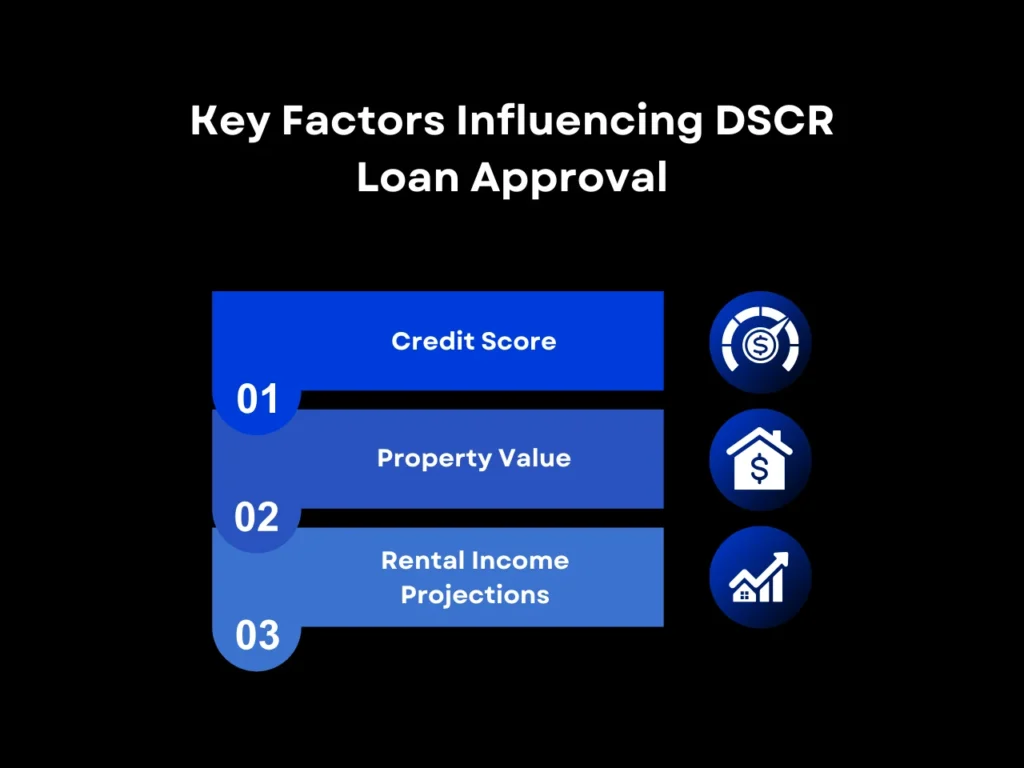
- Credit Score: Although DSCR loans place less emphasis on personal finances, a strong credit score can still improve your chances of approval and potentially secure better loan terms. At Defy, we approve DSCR loans for borrowers with a FICO score of at least 620.
- Property Value: The market value of the property is crucial for lenders to assess its income potential and ensure it aligns with the loan amount requested.
- Rental Income Projections: Accurate projections of rental income are essential to demonstrate the property’s ability to cover its debt obligations. Lenders will scrutinize these projections to ensure they are realistic and sustainable.
Additionally, a well-prepared business plan and financial forecast can enhance your loan application. Include detailed information about your investment strategy, expected income, and expense management. For some properties, particularly those in environmentally sensitive areas, lenders may also require you to demonstrate a good track record in property management.
Minimum DSCR Ratios Required by Lenders
In Colorado, the minimum DSCR ratio required by lenders typically ranges from 1.0 to 1.2. This means that the property should generate at least enough income to cover its debt service, with a higher ratio indicating a stronger financial position. At Defy, we approve DSCR loans for properties with ratios as low as 0.75.
Different lenders may have varying requirements based on the property type and their risk tolerance. For example, a commercial property in Denver may need a higher DSCR ratio requirement than a residential rental property in Colorado Springs because of the higher market volatility and financial risks in a more competitive urban environment.
Documentations and Requirements Specific to Colorado
When applying for a DSCR loan in Colorado, you may need to provide specific documentation that will make you more likely to get approved. These include things such as:
- Environmental Impact Assessments: Due to Colorado’s environmental regulations, some properties may require additional assessments, particularly those near protected areas or regions prone to natural events like wildfires or flooding.
- Zoning and Land Use Compliance: Ensure that the property complies with local zoning laws and land use regulations, which can be strict in Colorado’s urban areas and environmentally sensitive regions. Any planned renovations may require permits and additional documentation.
- Water Rights Documentation: In Colorado, water rights are crucial due to the state’s arid climate and agricultural needs. Depending on the type of property you want to buy with a DSCR loan, you may need to provide documentation proving legal ownership or access to these rights.
Having these documents ready can expedite the loan process and improve your chances of approval. At Defy, we don’t require tax returns or W2 income for DSCR loans, focusing solely on the property’s potential.
Types of Properties Eligible for DSCR Loans in Colorado
Generally speaking, as long as a property’s cash flow is positive, it can be approved for a DSCR loan. However, in Colorado, there are certain property types that will have a higher likelihood of having a good DSCR score and giving you the best returns.
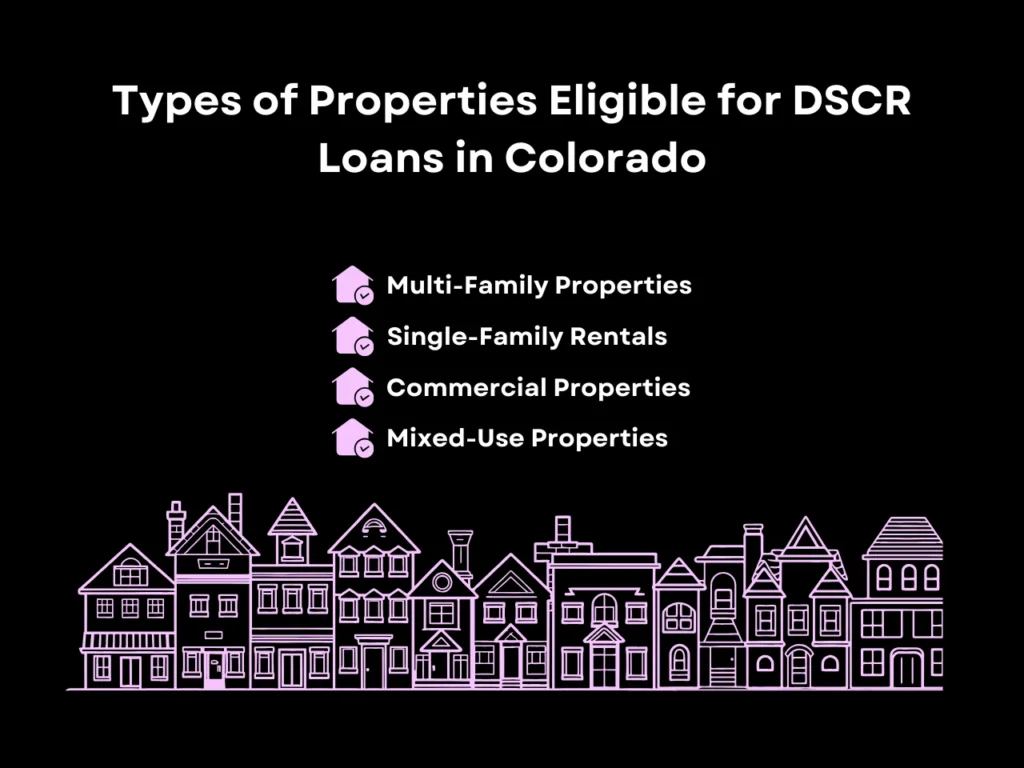
Multi-Family Properties: The Prime Choice
Given Colorado’s high rental demand and robust population growth, multi-family properties are your best choice for real estate investing, much like in many other states with many busy urban centers. Cities like Denver and Boulder are experiencing a surge in population, driven by a strong job market and quality of life, leading to increased demand for residential real estate.
Colorado’s favorable landlord-tenant laws also make it easier for investors to manage multi-family units, enhancing their appeal for DSCR loans. The stable rental income these properties generate can significantly boost your DSCR, making it easier to secure favorable financing terms.
Single-Family Rentals: A Strong Contender
Single-family rentals are another good option, particularly if you can find an ideal property in a suburban area close to commercial centers. In general, single-family rentals can benefit more from Colorado’s high property appreciation rates, offering the potential for long-term capital gains in addition to rental income.
However, be aware that the state’s property tax laws can vary by county, so investors should carefully consider the tax implications when investing in single-family homes. They do tend to have lower rental income than a multi-family rental at full capacity, but single-families often attract more long-term tenants, giving you a more reliable income stream. They are also easier to maintain, significantly lowering your operating expenses and potentially boosting your DSCR.
Commercial Properties: Opportunities with Caveats
Commercial properties, such as office spaces and retail centers, can also be financed with DSCR loans in Colorado, but they come with specific challenges. Colorado’s commercial real estate market is highly competitive, particularly in prime locations like Denver’s downtown district.
However, the state’s complex zoning regulations and the need for thorough market analysis add layers of complexity to the investment process. Investors must ensure that the commercial property they choose has a stable income stream to meet DSCR loan requirements, especially given the fluctuations in demand for commercial spaces in the post-pandemic era.
Mixed-Use Properties: A Balancing Act
Mixed-use properties, which combine residential and commercial spaces, offer diversified income streams but require careful navigation of Colorado’s zoning laws. These properties are particularly appealing in urban areas where demand for both residential and commercial spaces is high.
However, investors need to be mindful of the different regulatory requirements governing residential and commercial spaces within the same property. Success with mixed-use properties in Colorado often hinges on a deep understanding of local zoning laws and market demand.
DSCR Loan Colorado FAQ
What Makes You Eligible for a DSCR Loan in Colorado?

Eligibility typically requires a good credit score, accurate rental income documentation, and a high DSCR score. In Colorado’s dynamic market, the minimum DSCR usually ranges between 1.3 and 1.5. However, at Defy, we offer DSCR loans for properties with ratios as low as 0.75, as long as you meet a minimum credit score of 620.
Can DSCR Loans Be Used for New Investors in Colorado?
Yes, new investors can absolutely take advantage of DSCR loans, provided they meet the necessary criteria and demonstrate that the property has sufficient rental income potential. However, if you’re inexperienced, you may want to stick with the property types that generate more reliable income, such as multi-family and single-family rentals.
How Does the Colorado Real Estate Market Affect DSCR Loan Rates?
Colorado’s real estate market is driven by population growth, particularly in urban areas like Denver and Boulder, as well as the demand for housing near outdoor recreation hotspots. As rental demand spikes in these high-growth areas, DSCR loan rates may increase to reflect the enhanced income potential and competitive nature of the market.
What Are the Risks Associated with DSCR Loans?
The risks include fluctuations in rental income, changes in property value, and potentially higher interest rates compared to traditional loans if DSCR is particularly low. However, as long as you choose a property with a high DSCR, you can easily surmount these risks and enjoy a more positive cash flow.
What Are My Options if I Can’t Get a DSCR Loan in Colorado?
If you can’t get approved for a DSCR loan in Colorado, you might consider working with out-of-state DSCR lenders. At Defy, we’re licensed to provide DSCR loans in various states throughout the US, even to foreign investors who don’t have a US credit score or social security number. Otherwise, you might explore other financing options, such as portfolio loans or investing in a nearby state with more favorable terms.
Key Takeaway
A DSCR loan Colorado offers a flexible and effective financing solution for investors and business owners interested in property investment in the state. Since they focus primarily on the property’s income-generating capabilities, these loans provide an opportunity to gain enough funding to secure high-potential properties that can deliver fantastic returns.
With the ideal rates and amounts available from DSCR loans, you can easily tailor your investment strategy to maximize rental income. If you’re inexperienced, starting with multi- and single-family rentals cna be a smart move, while more experienced investors might explore the opportunities in commercial or mixed-used properties. Just make sure you meet eligibility criteria, including a good credit score and necessary documentation.
Looking for personalized guidance on securing a DSCR loan for a particular property? Don’t hesitate to start a conversation with Defy today so we can assist with your mortgage needs. We have helped numerous satisfied borrowers with everything from VA loans to non-QM loans.

